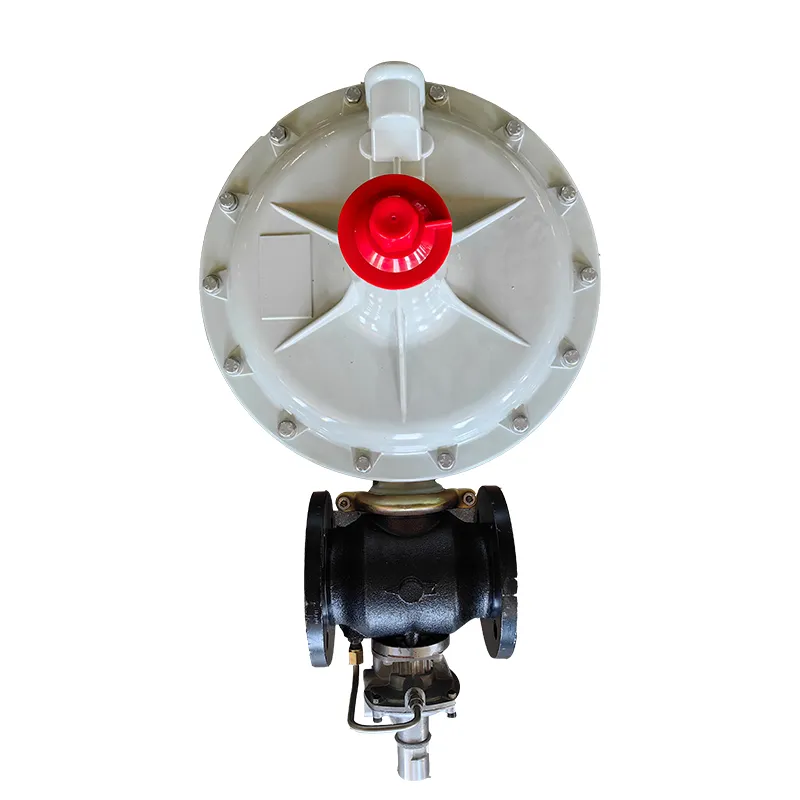
Oct . 21, 2024 23:23
Back to list
Understanding Gas Metering for Efficient Energy Management and Consumption Tracking
Understanding Gas Metering A Comprehensive Overview
Gas metering is a critical component in the management and distribution of natural gas, which is a vital energy resource for residential, commercial, and industrial sectors. Precise measurement of gas consumption is essential for billing purposes, regulatory compliance, and efficient usage of this valuable resource. This article delves into the significance of gas metering, the technologies involved, and future advancements in this field.
Importance of Gas Metering
The primary purpose of gas metering is to measure the amount of gas consumed by customers accurately. This measurement ensures that consumers are billed correctly for the gas they use, promoting fair pricing and economic efficiency. Additionally, accurate gas metering is crucial for utility companies to forecast demand, manage supply, and maintain infrastructure integrity. By providing insights into consumption patterns, gas meters can help enhance energy efficiency and minimize waste, contributing to environmental sustainability.
Moreover, regulatory bodies often require precise gas metering to monitor and ensure compliance with safety and environmental standards. Accurate data collection aids in the identification of leaks and other inefficiencies in the gas distribution system, which can be critical for reducing hazards and maintaining the safety of both customers and infrastructure.
Types of Gas Meters
There are several types of gas meters used in various applications, each with its own advantages and use cases
1. Diaphragm Meters Commonly used for residential purposes, these mechanical meters measure gas flow through the expansion and contraction of flexible diaphragms. They are reliable and cost-effective, making them suitable for low to medium usage households.
2. Turbine Meters Often deployed in commercial and industrial settings, turbine meters utilize a rotor that spins as gas flows through the meter. The number of rotations correlates to the volume of gas consumed; they offer high accuracy at high flow rates.
3. Ultrasonic Meters Utilizing ultrasonic sound waves, these meters measure the gas flow with high accuracy, regardless of the flow rate. They are becoming increasingly popular in large commercial and industrial systems due to their reliability and low maintenance needs.
gas metering

4. Positive Displacement Meters These meters work by capturing a specific volume of gas and then measuring its flow through mechanical means. They are known for their accuracy and are suitable for various applications where precise measurements are essential.
5. Smart Meters The emergence of smart metering technology has revolutionized the gas metering landscape. Smart meters allow for real-time data transmission, enabling consumers and utility companies to monitor usage remotely. They facilitate dynamic pricing models and empower users to make informed decisions about their energy consumption.
Technological Advancements
The field of gas metering is continuously evolving, driven by technological advancements and the growing demand for sustainability and efficiency. One significant trend is the integration of the Internet of Things (IoT) with gas metering systems. IoT-enabled meters can provide real-time data analytics, predictive maintenance alerts, and enhanced customer engagement tools.
Furthermore, there is an increasing focus on automation in gas metering, which minimizes human error and expedites the data collection process. Automated reading and billing systems are enhancing operational efficiency and customer satisfaction.
In addition, advancements in digital technologies are paving the way for more sophisticated data management systems. These systems can analyze consumption patterns, track trends, and provide actionable insights for both consumers and utility providers. As a result, energy management has become more streamlined and effective.
The Future of Gas Metering
As the world shifts towards a more sustainable energy future, gas metering will play a pivotal role in supporting this transition. The implementation of smart grid technologies and renewable energy integration will require sophisticated metering solutions to ensure efficient energy distribution and consumption.
In conclusion, gas metering is a vital aspect of modern energy management, ensuring that natural gas is utilized efficiently and safely. With technological advancements driving the evolution of metering solutions, the future promises even greater accuracy, reliability, and user engagement, ultimately contributing to a more sustainable energy landscape. By understanding gas metering's importance and the innovations surrounding it, consumers and utility providers alike can contribute to a more efficient energy future.
Latest news
-
Safety Valve Spring-Loaded Design Overpressure ProtectionNewsJul.25,2025
-
Precision Voltage Regulator AC5 Accuracy Grade PerformanceNewsJul.25,2025
-
Natural Gas Pressure Regulating Skid Industrial Pipeline ApplicationsNewsJul.25,2025
-
Natural Gas Filter Stainless Steel Mesh Element DesignNewsJul.25,2025
-
Gas Pressure Regulator Valve Direct-Acting Spring-Loaded DesignNewsJul.25,2025
-
Decompression Equipment Multi-Stage Heat Exchange System DesignNewsJul.25,2025

